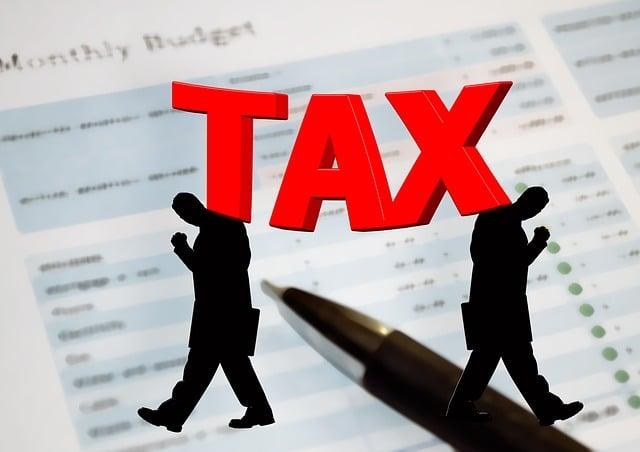Remitting your taxes to the Internal Revenue Service (IRS) is a civic duty and an act of patriotism, especially for the self-employed. You probably already know that.
But what many people don’t realize is that filing taxes is equally a civic obligation. That’s regardless of whether your taxes have already been remitted to the IRS, which is often the case.
However, certain factors could cause you to run late with your tax filing. And as expected, there are consequences to contend with.
Read on as we shed light on the penalties for neglecting taxes for three years.

What’s The Difference Between Not Paying and Not Filing Your Taxes?
One of the frequently asked questions by taxpayers is – what happens if you don’t file taxes for a considerable duration?
As already hinted, failing to file your returns can have far-reaching implications. But before we delve into those consequences, it’s imperative to spell out the difference between not filing (or late filing) taxes and not paying (or late payment) taxes.
Failing to pay taxes is essentially what it sounds like – not remitting your taxes within the stipulated period. There are various ways this phrase may be construed.
The failure might be attributable to the fact that the person was not obligated to pay taxes to the IRS. These are typically the unemployed or people with a gross income below certain thresholds. You can click here to read more about your income tax obligations.
However, in most cases, the term “failure” is applied concerning a category of people who wilfully abscond their tax duties. This is known as tax evasion, and it constitutes a criminal offense.
On the other hand, failing to file your returns implies you might have paid your taxes alright. But you didn’t declare those returns within the given tax filing window for some reason.
The tax filing deadline for the 2022 period was April 18, 2023. However, there’s an automatic 6-month extension available upon request.
Both failing to pay and failure to file taxes attract specific penalties. The penalty amount typically depends on the taxes due and how late you pay or file taxes.
What Are The Benefits Of Filing Your Taxes In Time?
Filing your returns in time is the surest way to avoid costly penalties.
The penalty for not filing taxes can vary from a few hundred to thousands. It mainly depends on the lapse duration since you last filed your taxes and the years you failed to file those returns.
Ideally, these penalties are charged in percentages. More on that later on.
Filing your tax returns on time also makes you eligible for tax refunds.
Also known as tax rebates, tax refunds are reimbursements that the IRS makes to taxpayers for paying more than the tax they owe to the agency. When you do not file your returns in time, the IRS uses your tax refunds to settle part of the penalty for late filing.
Note that tax rebates must be claimed within three years of your return due date. That already means failing to file your taxes for three years could have devastating consequences.
Another benefit of filing your taxes on time is increasing your credit score.
Most financial institutions will require you to submit copies of your tax returns before obtaining a credit facility. The same is true when applying for federal aid for higher education.
These institutions will typically delay your loan or grant approvals if it emerges that you don’t file your returns in time.
Last but not least, filing your federal income tax in time provides extra safeguards on your social security. That’s especially true for the self-employed.
If you’re self-employed and do not file taxes, your income will not be reported to the Social Security Administration. This might render you ineligible for credits toward Social Security retirement benefits or disability benefits.

What Happens If I Don’t File My Taxes For Three Years?
1. Failure-to-File Penalty
If you owe taxes to the federal government and fail to file your returns in time, the IRS may slap you with a failure-to-file penalty.
The standard penalty for late tax payment and filing is 5% of the unpaid taxes for every month your tax return is late. Note that “unpaid taxes” refers to the tax balance on your federal income tax return, less any payments you might have made (directly or indirectly) during the year, such as withholding taxes.
The minimum penalty is $435 or 100% of the unpaid taxes, whichever is less. This fine occurs when you file your returns more than 60 days late.
However, the fee is capped at 25% of the unpaid tax amount. This ensures that the total doesn’t keep increasing.
2. Levy On Your Bank Accounts or Wages
A failure-to-file penalty may not sound like a severe penalty for not filing taxes. However, failing to file your returns for three years could also cause the IRS to set up a levy on your bank accounts or wages.
A tax levy is a legal permit allowing the taxman to seize and use your property to pay off your outstanding debts. Unsurprisingly, the easiest assets to dispose of are income and bank savings.
The good news is that the IRS won’t set up a levy on your assets without drawing your attention to your tax obligations. The agency will first send you a Notice and Demand for Payment (CP501) and a Final Notice of Intent to Levy (CP504) and wait for you to act. When you ignore these notices, the taxman will be legally allowed to seize your assets and settle your debts.
It’s important to note that the assets seized may not necessarily be those in your direct possession, such as your savings and salaries. The agency might also impose a levy on your retirement account, the company’s accounts receivable, property, vehicles, and other indirect assets.
3. Notice of Federal Tax Lien
Liens and levies are closely related but not the same thing. A tax lien is a legal notice that the IRS intends to seize specific property in the future, while a tax levy is a notice to seize those assets.
In other words, you must have been served with a federal tax lien notice before receiving a tax levy notice.
To obtain a tax lien against your property, the IRS must file a Notice of Federal Tax Lien. This notice informs the agency of all your other creditors. They can then contact those entities to let them know they’ve taken charge of your property, including those you might have used as collateral.
Once filed, a tax lien can limit your ability to obtain credit facilities. It can also considerably blow your creditworthiness even after the notice is lifted.
This is also the point where the IRS might charge you with tax evasion if they suspect you deliberately avoided filing taxes. And in extreme cases, you could have your passport revoked as the agency prepares a lawsuit against you.

4. Missing Out On Tax Rebates
Another answer to the question – what happens if you don’t file taxes for 3 years – is that you might miss out on possible tax rebates.
It’s not unusual to remit more taxes to the IRS than the amount owed. This is especially common for large companies handling multiple payrolls.
In fact, the IRS recently reported up to $1.5 billion in unclaimed tax refunds. So, there’s a decent chance that the taxman owes you some dollars, but you can only claim if you diligently file your returns.
Once three years elapse from the due date of your tax returns, you’ll be rendered ineligible to claim your tax rebates. You won’t be able to apply for those refunds on future returns either.
5. Filing a Substitute Tax Return
Sometimes, the IRS gets a bit generous and chooses to file a substitute tax return on your behalf. The agency will simply rely on data from third-party sources, such as 1099 and W-2 tax forms.
However, note that the information may not be 100% accurate since it doesn’t directly come from you. Besides, the agency will not help with tax deductions.
Even worse, you could lose any credits you may be entitled to. Plus, the IRS won’t always file a substitute tax return on your behalf.
Most importantly, remember that the IRS may still use the information obtained to slap you with the applicable late filing penalties. You have up to 90 days to submit the correct returns or take the matter with the U.S. Tax Court.
What Are The Penalties For Not Paying Taxes?
You now understand what happens if you file taxes late. But what of late tax payments?
Surprisingly, the penalties for not paying taxes on time are less severe than for not filing.
The IRS charges a failure-to-pay penalty between 0.5% and 25% of the unpaid amount for each month you fail to pay your taxes. However, this fee will be levied until you clear your outstanding debt.
It’s also worth noting that the IRS charges interest for overdue taxes at a 3% rate.

Summary
Filing your tax returns in time is as essential as paying your taxes. It allows you to escape the IRS penalties and grant you eligibility for tax rebates. Besides, filing your returns on time can reflect favorably on your credit report.


